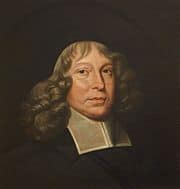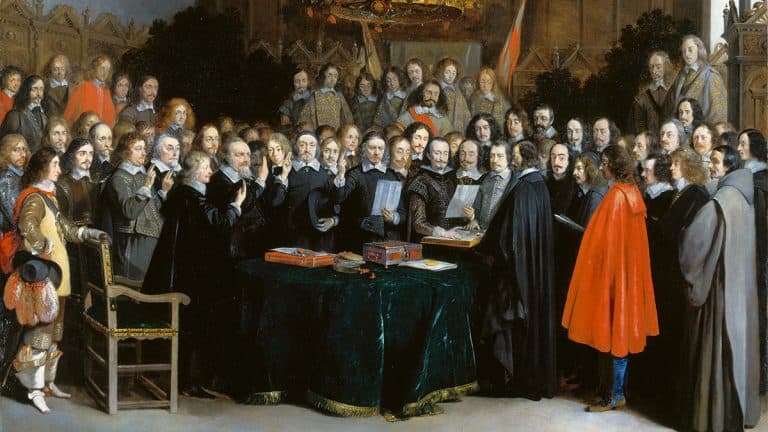Samuel Rutherford & His Contemporaries
 The following rare public domain article is now available for free download in PDF:
The following rare public domain article is now available for free download in PDF:
Prof. W.G. Blaikie [1820-1899], “Some Preachers of Scotland. Samuel Rutherford and His Contemporaries,” Sunday at Home 36 No. 1842 (August 17th 1889): 517-520.
Samuel Rutherford, and His Contemporaries
Professor W. G. Blaikie, D.D., LL.D.
Whatever may be thought of the great preachers of Scotland in the covenanting period, it is certain that, judged by the present standard of manners and culture, they stood in the foremost rank among the scholars of their time. Samuel Rutherford, for example, at the close of his own studies at the University of Edinburgh was appointed one of its regents or professors—a striking proof of his abilities and attainments. A similar distinction was conferred on two of his contemporaries, David Dickson and Robert Blair, by the Uni¬versity of Glasgow.
On leaving Edinburgh, Rutherford became Minister of Anwoth in the Stewartry of Kirkcud-bright. The church lies in a hollow, embosomed in wood, and seems the very ideal of a country church. Gordon of Earlston, afterwards Viscount Kenmure, was one of -the landowners, a man of eminent godliness and of a family most attached to the church. Rutherford’s first sermon was from John ix. 39—rather a strange text: “For judgment I am come into this world, that they which see not might see; and that they which see might be made blind.”
In the very first years of his ministry he had a sharp lesson in the school of affliction. His wife suffered from a most painful illness. For thirteen months before her death she was in almost constant agony, crying out at night in paroxysms of pain. Among his people Rutherford was a marvel of diligence. Up at three in the morning, he had done much work among his books before the day had well begun. It was said of him that he was “always praying, always preaching, always visiting families, always visiting the sick, always catechising, always teaching in the school, always writing treatises, always reading and studying.” The fervour of his preaching was remarkable—the earnestness with which he preached Christ. Many came from great distances to his church. So earnest was he for the good of his people that he could say: “My witness is in heaven, your heaven would be two heavens to me, and your salvation two salvations.” And of his prayers: “There I wrestled with the angel and prevailed. Woods, trees, meadows and hills are my witnesses that I drew one fair match between Christ and Anwoth.”
But the enemy could not but try to sow tares in so goodly a field. In 1636, nine years after his settlement, he was called before the High Commission Court on account of his non-con¬formity to the Episcopal government of the church, and banished from Anwoth. His Patmos was Aberdeen, then conspicuous for its zeal in the opposite cause. Here many of the “Letters” were written by which he is so well known. Two years later, he returned to his beloved Anwoth; but next year he was removed to St. Andrew’s, where he became Professor of Divinity and Principal of St. Mary’s. He had now no pastoral charge, but it is said that before accepting the chair, he bargained that he should be allowed to preach somewhere every Sunday, so much did he delight to proclaim the love of God in Christ.
Click here to continue reading.

